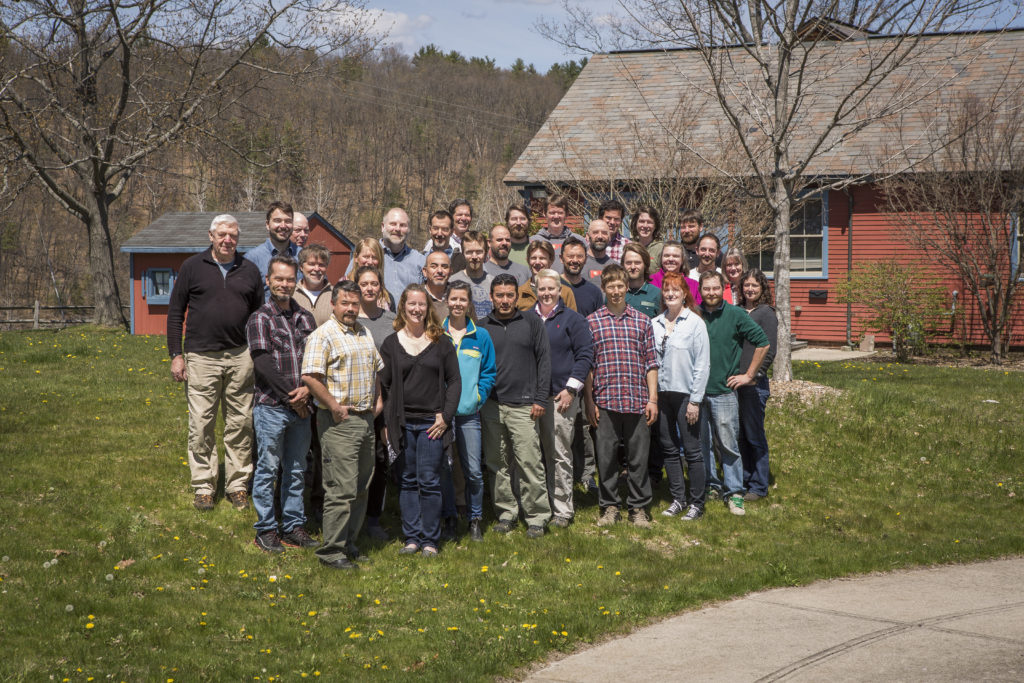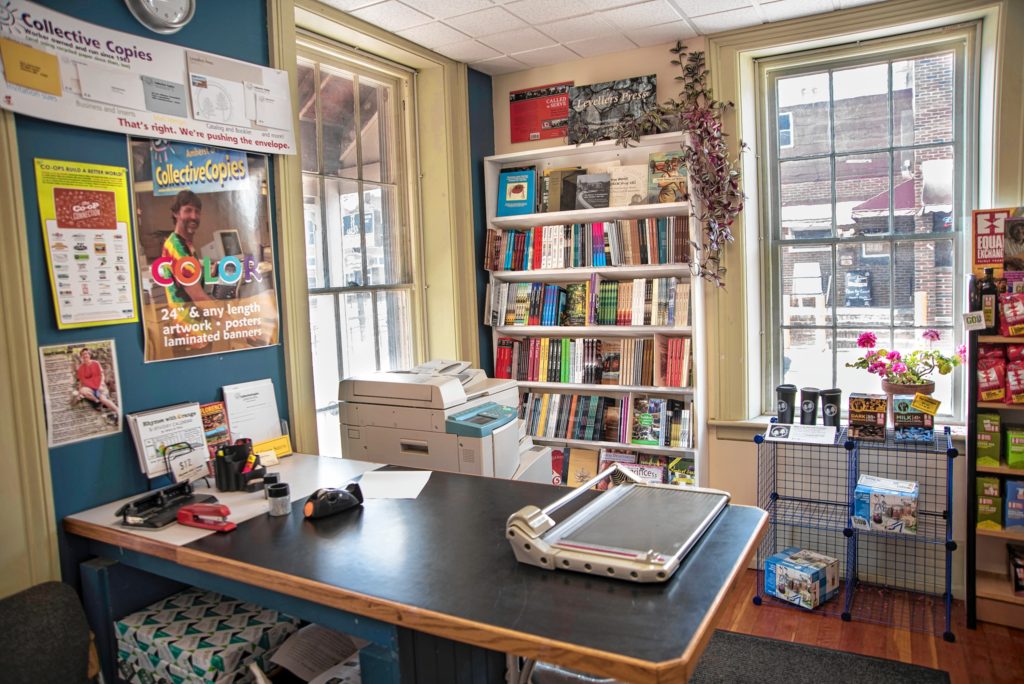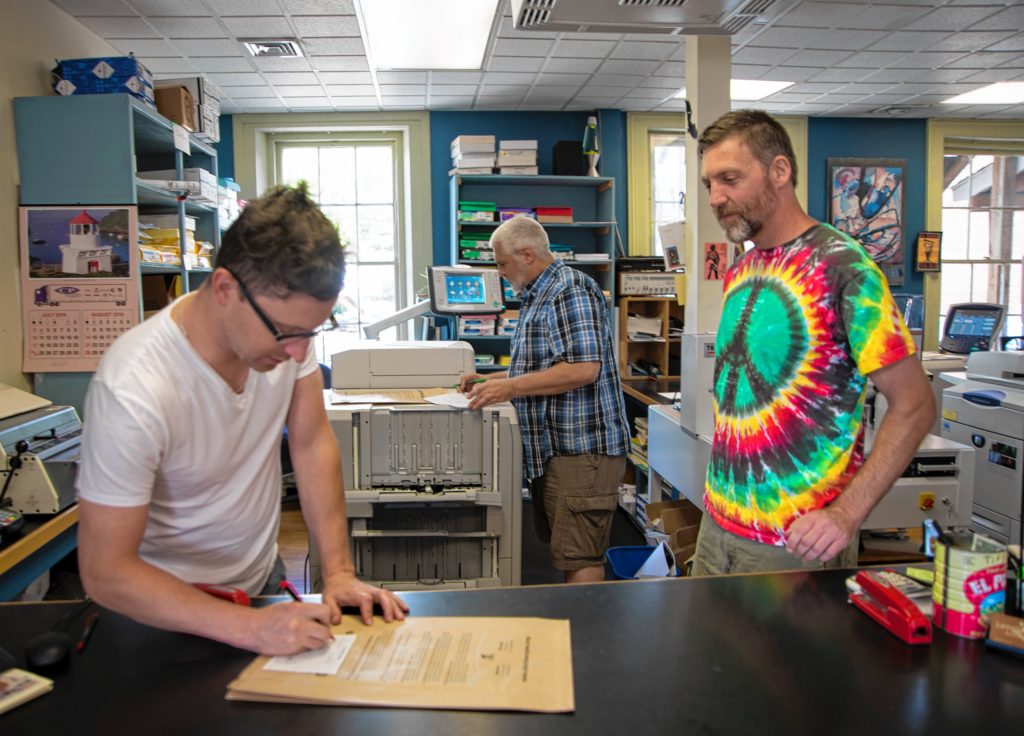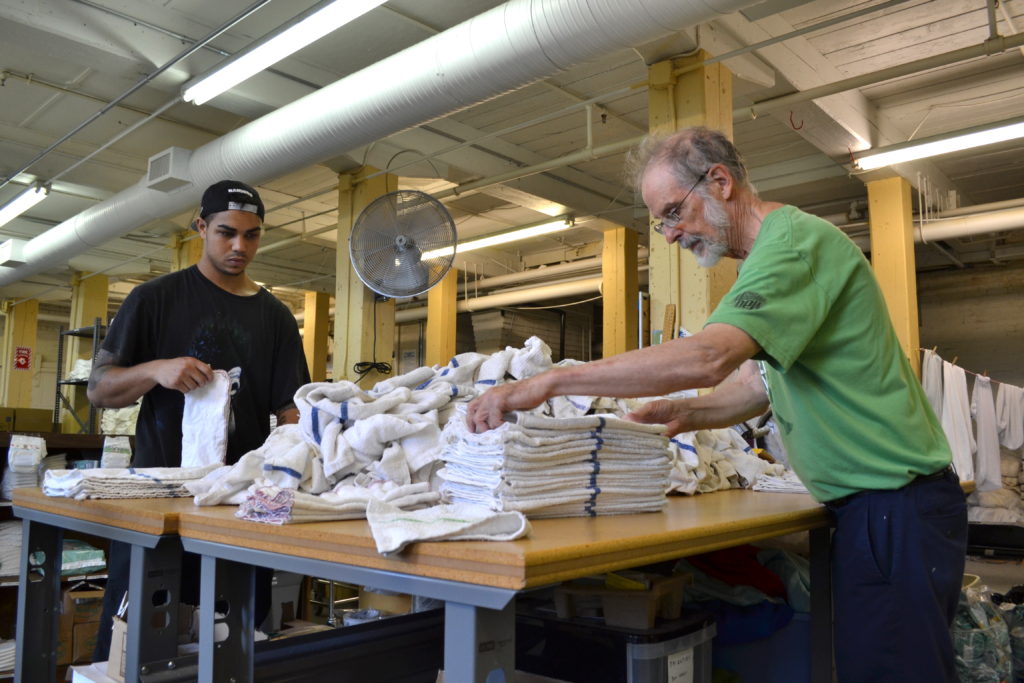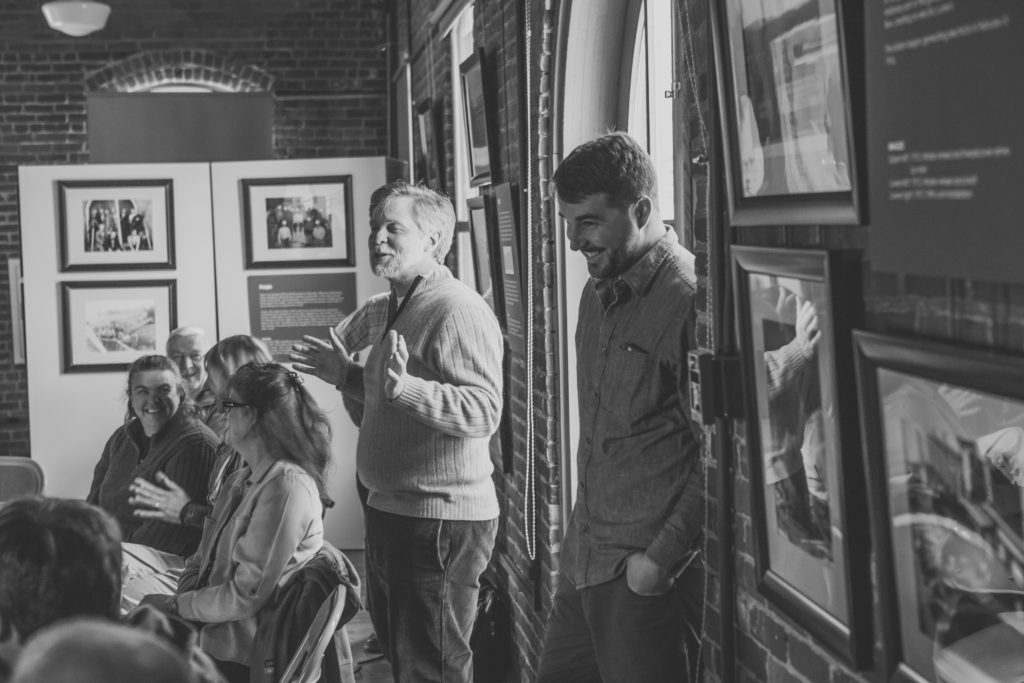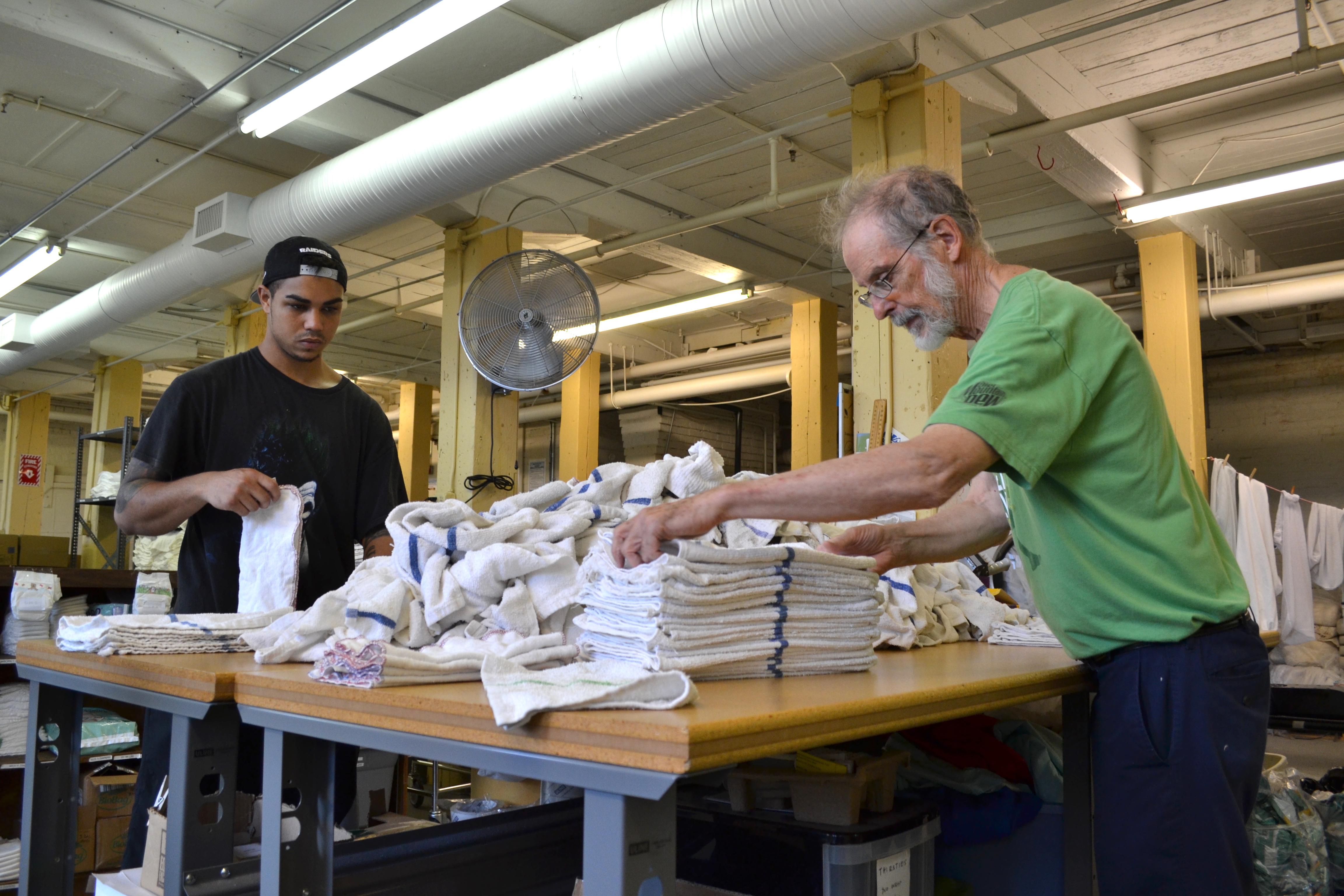Co-ops and granola go together like seitan and soy sauce — but what if there is no granola?
We love our local grocers, and we’re psyched that the food co-op movement is growing, but working cooperatives aren’t just for breakfast anymore.
Almost any kind of business can be run as a co-op. That umbrella term catches all forms of management in which workers and/or members have authority over the direction of the company. Employee-members also get to share in any profits at the end of the year.
Collective co-ops are driven by consensus decision-making. Co-ops also use straight hierarchy, a management team with a labor force, and participatory management, to name a few systems.
At its most basic, a cooperative business is any business that is worker-owned and operated in a democratic fashion. Because workers are owners, there is usually a lengthy interview process and a requirement to buy into the business. The buy-in can be anywhere from $250 to thousands of dollars. Employee-owners attend meetings to discuss the future of the business and make decisions. If there are profits at the end of the year, the money is split up among the owners.
This all sounds awesome, but there are few co-ops in the U.S. — between 399 and 500, according to Adam Trott, executive director of the Valley Alliance of Worker Cooperatives. Meanwhile, there are more than 2.5 million co-ops worldwide, according to a 2014 United Nations report on cooperative economy, and the countries with the most coops also happen to be the most progressive. There are some serious barriers to the proliferation of co-ops, and the biggest one is a lack of awareness.
“There’s an invisibility issue,” Trott says. “Cooperatives were tied to a democratic grassroots approach to the economy, which wasn’t always popular. Worker cooperatives were written out of the laws in the U.S.”
Trott says that it can be difficult to find lawyers and accountants well-versed enough in cooperative business practices to be of help to owners and employees looking to start a co-op.
The Valley Alliance of Worker Cooperatives started a certificate program in cooperative entrepreneurship at UMass to spread awareness of cooperative businesses, provide a resource for these types of establishments, and inspire future entrepreneurs. The group also provides online tools for cooperative organizing and best practices.
There are eight member cooperatives in the alliance, working in the recycling, printing, body care, solar power, and laundry industries. The businesses generate more than $7.2 million in annual revenue, the alliance says, and have more than 60 worker-members.
For a closer look at how some of these businesses operate, we spent time with three area cooperatives that aren’t grocers: Collective Copies, Simple Diaper and Linen, and Pioneer Valley Photovoltaics (PV Squared).
Everyone in Charge
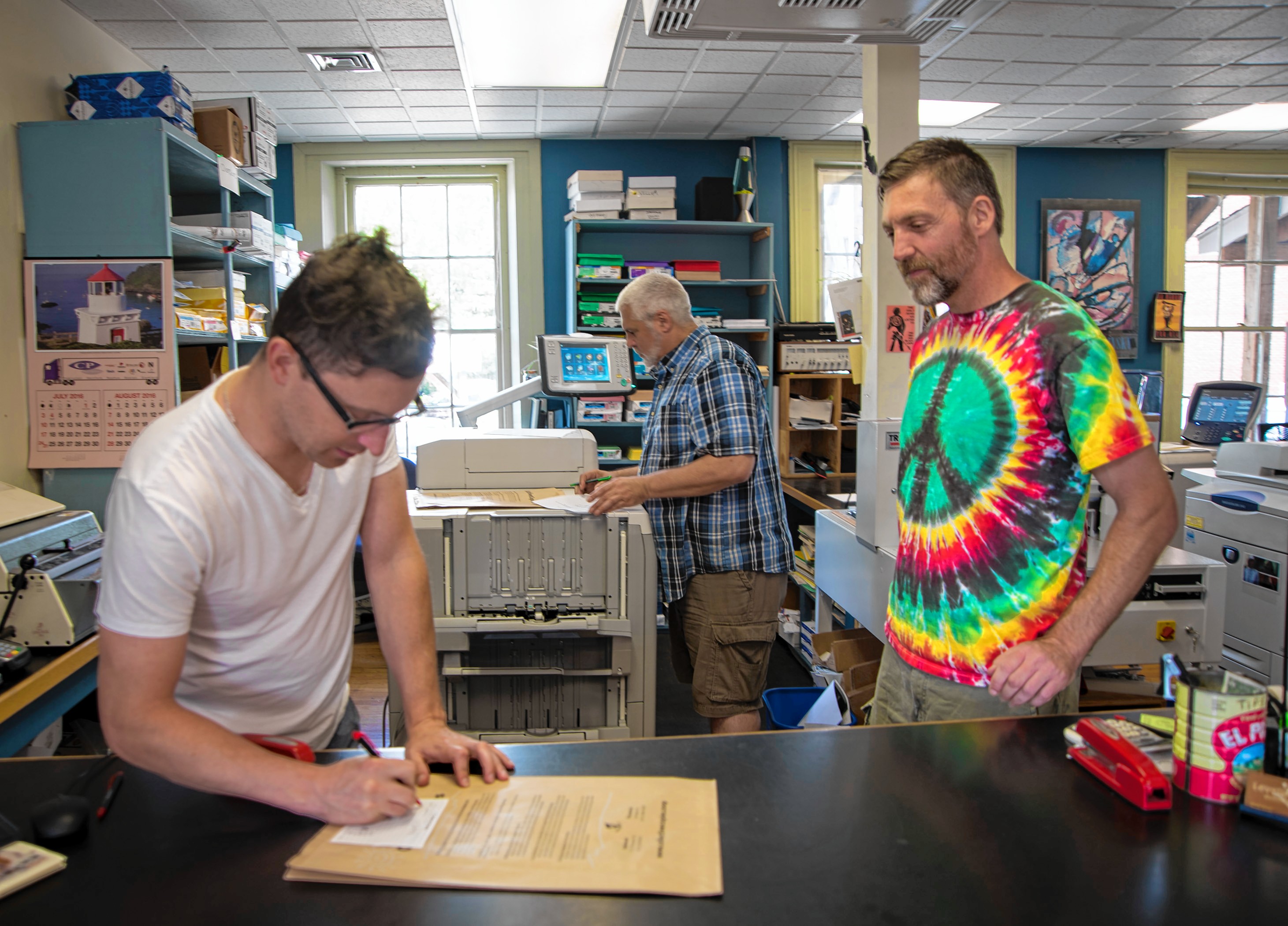
If you can, imagine a workplace where every employee is the boss and every person does the same job. It may sound like a nightmare — all queens and no bees, right?
But upon entering Collective Copies on Main Street in Florence — where each of the 12 employees is also an owner — the customer is ensconced in the kind of hard work, ethics, and good vibes that built Northampton back in the 1980s. It’s mellow, there’s acoustic guitar music playing and a faint hint of sage in the air, the wooden floors creak, the people running the shop have natural hair and loose fitting clothes, and everything on sale was created by a local.
Collective Copies is a 33-year-old copy/print shop and publisher with locations in Florence and Amherst, and it’s also a collective co-op. The goal is to maintain a business that provides good wages and benefits to all employees and their family members — and for Collective Copies, that includes 100 percent health insurance coverage, without co-pays. If there are any profits at the end of the year, the owners get together and decide how much should be reinvested into the business and how much of a bonus should go home with workers. The collective also has a charitable aspect; 10 percent of proceeds benefit local art, emergency, and education nonprofits.
“Naively and shallowly, I was initially drawn to the idea of sharing the profits. I was seeing dollar signs,” says Randy Zucco, who has been with the collective for 18 years. “But once I got involved in the group, found where I fit, found my voice — if you own something you become invested in it, in all aspects, the customers, the relationships, the community, the business and that’s really just the best.”
Zucco says communication is key to the co-op’s success. While everyone technically has the same job, owners routinely fall in and out of niches. For example, at various times during his Collective Copies career, Zucco has been the accountant, a clerk, an editor, and a designer. Right now, he’s kind of a hybrid, he says. He works on e-publishing and does whatever needs to be done in the retail shops in between.
For most of the life of the business, owners met every month to discuss the care and direction of the work, but now they meet quarterly.
“We’ve been doing this so long, we don’t need to meet as much. The youngest member is Adam [Trott] and he’s been here since 2004,” Zucco says.
[caption id="attachment_29450" align="aligncenter" width="3000"]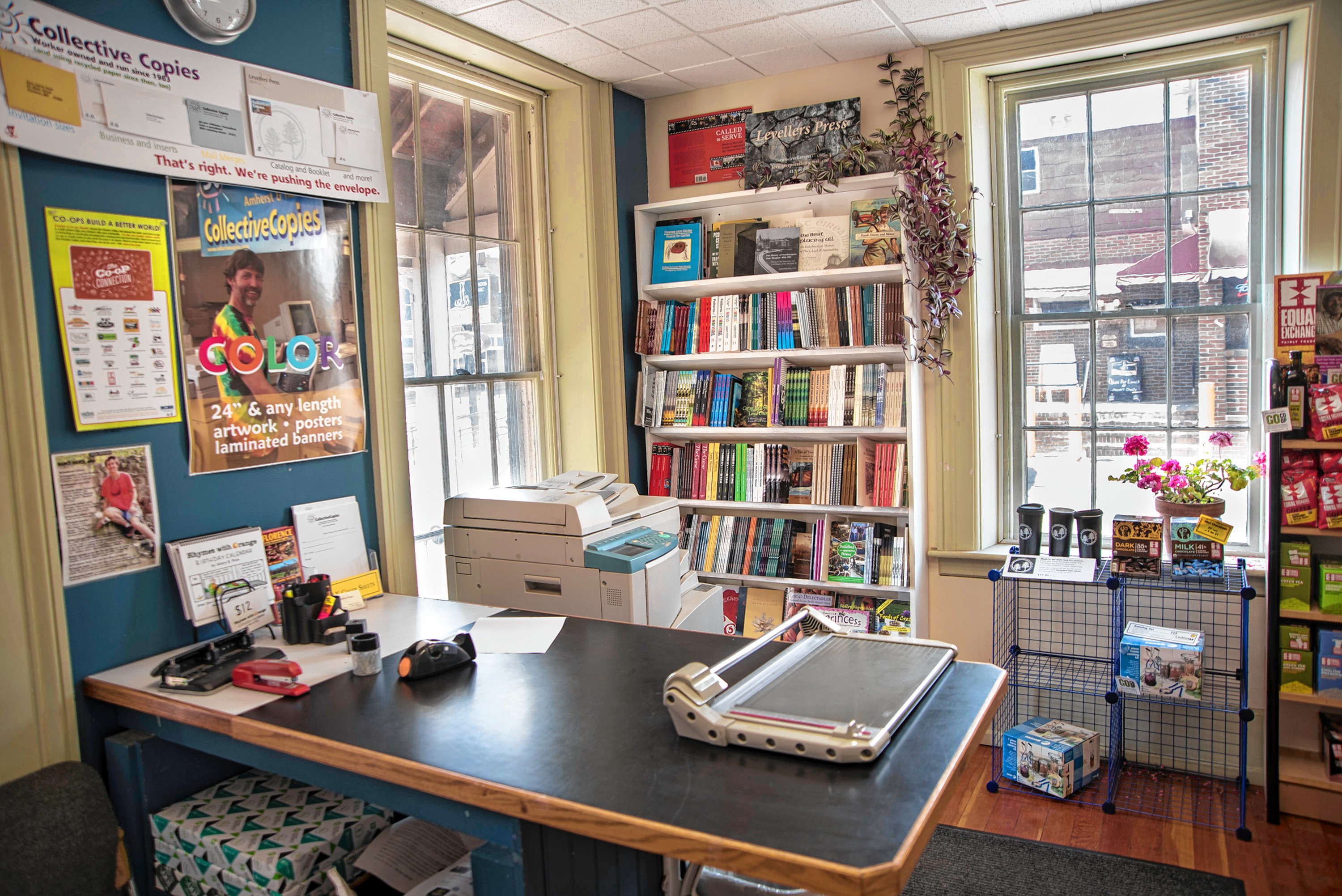 A view of inside Collective Copies at 93 Main in downtown Florence.[caption]
A view of inside Collective Copies at 93 Main in downtown Florence.[caption]
Collective Copies employees Adam Trott, left, Gregory Balsewicz, center, and Randy Zucco, right, inside their business at 93 Main in downtown Florence.
For the most part, there are not too many disagreements among owners about how to run Collective Copies, Zucco says, which is great because the bylaws state all decisions require 100 percent support of the owners. There is a contingency for an impasse: after two or three deadlock votes, the standard of approval can dip to a two-thirds vote. Collective Copies has never had to invoke this clause, he says.
It’s no accident, however, that the owners at Collective Copies are all on the same page: getting a job there requires a lengthy interview process, a $250 owner buy-in, and a six month post-hire probation period. The owners, after all, only want to bring in other owners who share their business philosophy and mission.
“I sat down for an interview with 14 people and … I was surprised,” Zucco says, “but I think I did well, or at least I thought I did — I didn’t get the job until two weeks later after the first guy they hired didn’t work out.”
The biggest contention the owners faced was probably back in the early 2000s, when owners considered moving the Amherst shop to another location in town. There was passion on both sides of the move as Collective Copies attempted to respond to the gut punch the business took when college professors stopped handing out course packets and began putting everything online. Course packet printing had been more than half of the business, Zucco says.
“When the industry changed like that, it hurt us big,” he says. Collective Copies retained its office space in Amherst and created a new revenue stream by publishing local literature. “We’re in a good place now. We got through that and I think we’re doing well,” Zucco says.
— KP, editor@valleyadvocate.com
Keep the Faith
PV Squared Solar in Greenfield has been worker-owned since they began designing and installing photovoltaic systems as a team of four in 2003.
Kim Pinkham, PV Squared’s HR, talent, and culture manager, has been there from the start. She was drawn to the company when she heard a radio ad about a forum on starting a worker-owned solar panel manufacturing plant in Greenfield. Being unemployed at the time, Pinkham was curious.
“Personally, when I showed up, I hadn’t ever really heard of worker co-ops before,” she says. “I showed up because it was solar and I had a lot more knowledge about the environmental impacts than I did about the social justice impacts, but I learned and it became important to me.”
Eventually the manufacturing idea was abandoned because of the up-front capital required, so the group tried for something smaller: PV Squared, a solar panel installation company started on a shoestring.
No one took home a paycheck for the first six months, and even after that, the earnings were barely enough for the four to get by.
“At the time we had no clients,” she says. “And, really, we sort of struggled in the first year with getting our name out there and having people understand the technology. There was a pretty steep learning curve for both us and for the public to understand what we were offering at the time … The biggest learning curve was learning how to be a business person.”
But dedication to the company paid off, Pinkham says. “We worked for free. Some of us had second jobs and some of us had very understanding spouses. For me, it was a combination of both.” Pinkham, along with Philippe Rigollaud— PV Squared’s purchase manager, and the other remaining founding member— realized that something had to give. The focus, Pinkham says, was on securing new contracts and carrying out the work, with precious little time to worry about much else. “The pressure mounted as we went,” she says. “It was a question we would ask every week: are we doing well enough now to start paying? Eventually we had to come to the point where we said, all right, this is ridiculous. We’re just going to start cutting a paycheck and getting used to — from the business standpoint of it— forcing ourselves to be able to make payroll every week.”
The company started to break even after a couple of years, and it had its first profitable year in 2009. Since then, it’s continued to grow. Today, the company has 38 employees, 17 of whom are worker-owners. The company has nearly doubled in size in the past few years, Pinkham says, and they’re on track to be two-thirds worker-owned by the end of 2017.
Pinkham says the idea of following a more conventional business model was never really a consideration. Giving every worker-owner an equal say can pose challenges, she says— making decisions can often take longer— but in the end, they’re better off.
“No one person can understand every angle of every issue,” she says. “But when you have so many people participating in the decision, you’re more likely to have all of those views out there.”
And it’s not just the added insight of collective wisdom that makes the co-op model worth it, she says. Workers feel more personally invested in a company when they own a stake in it.
“Part of how we position ourselves out in the world,” she says, “is you have owners of the business working on your roof, you have owners of the business talking to you for sales, you have owners of the business sweeping the floors, you have owners of the business at every stage because we’re spread throughout the company… All of those people are acting with the long term interests of the company at heart.”
As the company continues to grow, there will be more seats at table. Come January, one of them is likely to belong to Stacy Metzger, PV Squared’s general manager. She came on board in October 2014, and as of 2017, she’ll be eligible to become a worker-owner. She says that the co-operative model was something that attracted her to the company to begin with, and she’s happy for the opportunity to have a stake in it.
“We’re mission-driven, and the values align with my own values, which is something that’s really important,” she says. “I truly believe that we need to change the way we do business in order to have a healthier society and planet going forward.”
— PV, pvancini@valleyadvocate.com
Pooping with Purpose
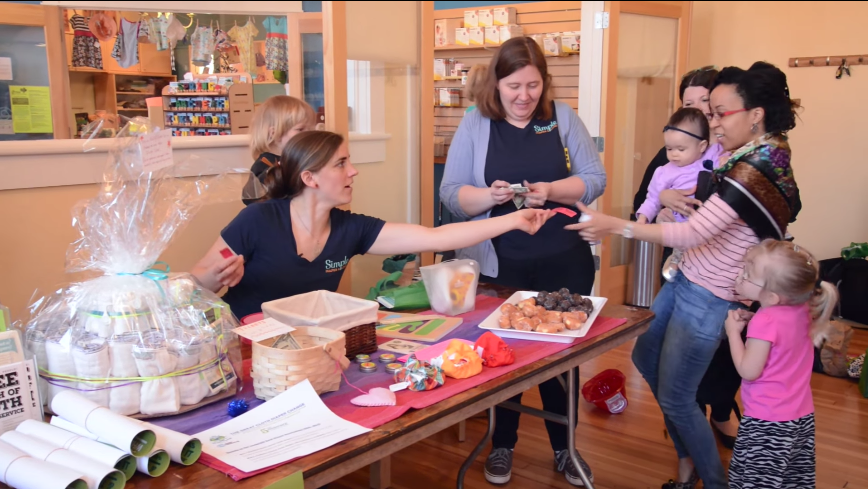
Angie Gregory started an eco-friendly diaper laundering service in the basement of her Northampton home in 2009. In part, she founded the business to meet a need that every new parent faces — each baby will run through an astonishing average of 6,000 diapers. But from day one, Gregory envisioned a greater mission for Simple Diaper and Linen: to educate people about the tons of used diapers that end up in the trash every day, and to help change our habits when it comes to disposing of hazardous household waste.
A landfill-free diaper service is not a business idea that necessarily hinges on use of the cooperative model. But Gregory, like many others, saw an opportunity to express her values. “I was familiar with the co-op model and attracted to it,” Gregory says, “and I knew that if I was going to employ people, I wanted to start with a model where everyone involved felt that their opinion mattered.”
So in 2012, Simple incorporated as a co-op, joined the Valley Alliance of Worker Cooperatives, took out a loan on a delivery van, and expanded into a new space in the Wauregan building on Dwight Street in Holyoke. Gregory says Simple currently services about 100 individuals and businesses — the company offers both compostable diapers and laundering services for cloth diapers and linens — from Brattleboro to Enfield, and has the capacity to double in size over the coming year.
Finding the right company and staff structure has been complicated during these first few years, Gregory says. Early on, she worked with several founding members to get the business off the ground, but a few people left, and for now she is the only owner. Each of her five staff members have the opportunity to come on board as a worker-owner, but Gregory has found that some people, while dedicated, simply want to be part of the cooperative community without putting themselves on an ownership track.
“We started to open up the model a bit, so that it wasn’t an all-or-nothing scenario,” she says. “If people want to just have a great place to work, and that’s it, they should be able to have that.”
The focus for now, then, is on growing the staff, adding more customers, becoming even more sustainable, and keeping an informal conversation going with all involved on the benefits of coming on board as worker-owners.
Collaboration in the workplace, and building up shared interest, is what will keep Simple going, Gregory says. “That’s a huge motivator for being a co-op model — because everyone cares. This isn’t designed to be a punch-in, punch-out job, where you don’t care if the washer’s half-full before you run it. When we think as a family, and care for the business like it’s a child we all have, it creates a better environment for being more energy-efficient and finding new solutions.”
The Valley, Gregory adds, is a progressive place for those interested in starting co-ops to seek out help and mentorship. “Ours hasn’t been any textbook experience,” she says, “and it’s been challenging. But having those resources has made it livable.”
— HS, hstyles@valleyadvocate.com


